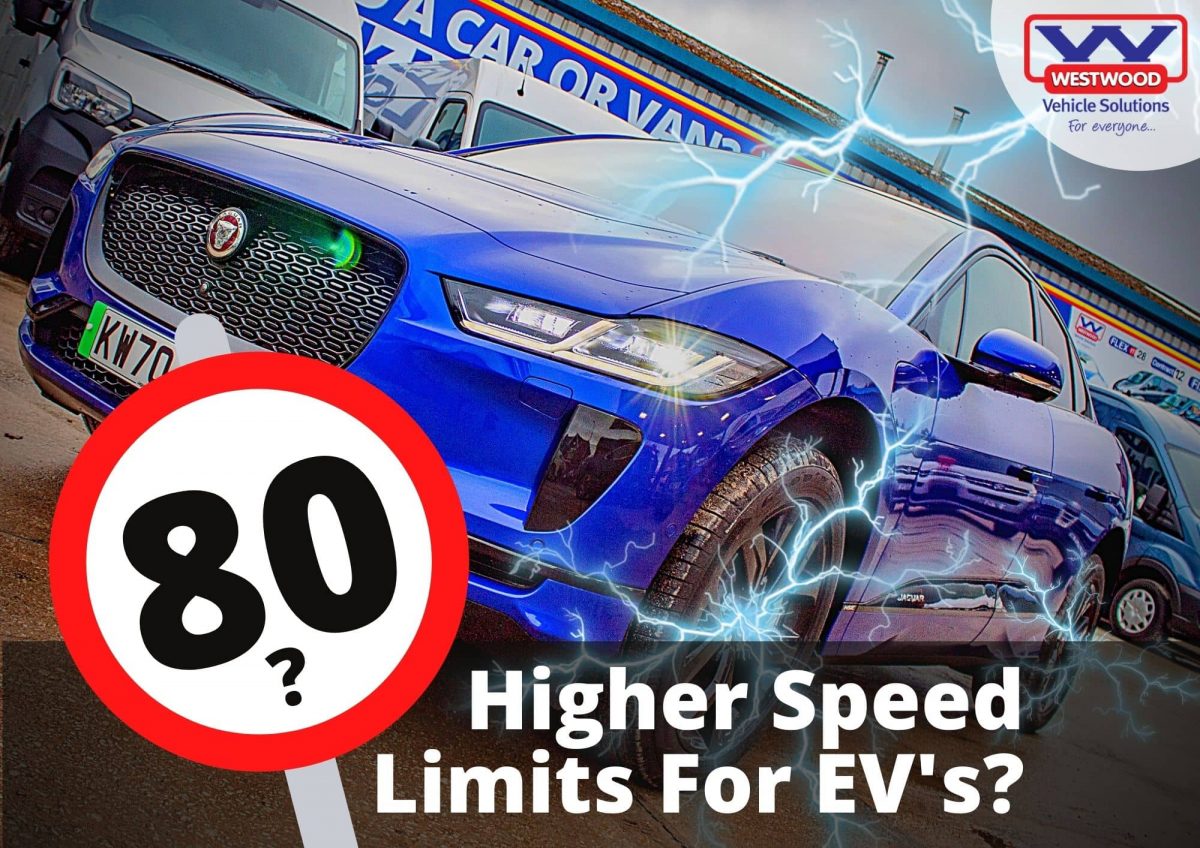Will Electric Vehicles Get A Higher Speed Limit?

Electric Vehicles are already a less uncommon sight on the road – could they soon be allowed to drive faster than petrol or diesel vehicles? It’s not as far fetched as it sounds. If you were considering electric car hire, or even electric van hire for just a month or two to get used to electric vehicles, or even to embrace the inevitability of an electric tomorrow and choose long term electric car leasing, now might be a great time to get in touch and get yourself behind the wheel of one.
As far as we know, ‘officially’ there aren’t any plans right this second to give electric cars and electric vans a speed limit over and above the maximum speed petrol and diesel vehicles are permitted to travel at, but the idea is already ‘out there’ and elsewhere in the world it’s already been done, so maybe it’s just a matter of time before the UK follows suit. Following are some thoughts which show why higher speed limits for electric vehicles might well arrive sooner than you’d think.
Why Might Electric Vehicles Be Allowed To Drive Faster?
The government has committed to, and enshrined into law, the target of outlawing the sale of petrol or diesel vehicles by 2030. That’s less than 8 years away. Electric car and van uptake is brisk, but while they’re exceptionally cheap to run, they’re not all that cheap to buy at the moment, so every lever that makes driving electric less painful is likely to be grabbed and pulled for all its worth in an effort to get people into electric vehicles. If YOU were suddenly allowed to drive 10 mph faster on the motorway with impunity, wouldn’t that encourage you to pay a few extra Quid for the car that gets you into the exclusive ‘go faster’ club?
The above, if enacted just to encourage electric vehicle uptake might just be seen to be a crude and arbitrary idea punishing those priced out of going electric, while simultaneously rewarding those rich enough to afford EV’s. This is on top of the already generous tax breaks enjoyed by electric car drivers (various grants, exemption from emission and congestion charging, almost non-existent company car tax, negligible running costs etc), However, the idea is an environmentally sound one too, which makes such an idea far easier to justify.
Typically, petrol and electric vehicles, have a sweet spot where they’re at their most efficient; broadly around 55mph. Above that speed, Co2 levels, noise pollution and other harmful emissions increase dramatically. If you’ve travelled into Manchester via the M602 recently, you might have noticed that this motorway has had the speed limit permanently reduced to 60mph, with reducing emissions cited as reason for doing so. If you had an EV driving along seeing this, you might think – “Electric vehicles don’t produce emissions at any speed, so why should I be required to slow down?” – Exactly! Don’t forget, Manchester is expected to be one of the next Cities to introduce some kind of emissions charge – in the guise of the proposed Manchester Clean Air Zone, so driving non-electric could be about to get more expensive in any case!
So will EV’s be allowed to travel at the same speed they can now while everyone else gets slowed down? It’s a valid question and until things start being debated more formally, we can only speculate. Motorway roadworks with their frustrating (but understandable) 50mph speed limits is only 5mph slower than the aforementioned sweet spot of fossil fuel efficiency. As tempting as it might be for the government of the day to reduce the national speed limit for conventionally power vehicles to 55 or 60 miles per hour, it’s unlikely they’d want to the massive outcry this would cause levelled at them. At least until EV use has grown to a majority. So quite a while away yet.
Having said that, there is a legal obligation for air pollution to be kept below certain levels and many urban areas already fall below the required standard. As ever, motorists may find themselves an ‘easy target’, so even public outcry might not be enough to prevent the political expediency of plucking the low hanging fruit in the face of the very real issue of tackling pollution and climate change.
With the above being the case there’s also an argument for the national speed limit to be increased but for EV’s only. Bear n mind, the 70mph maximum national speed limit was introduced in the 1950’s. If you drive in France, the maximum speed limit is 130kph – roughly 80mph and we all know about the German Autobahns, so the idea of an increased speed limit in general is a debate that’s been rumbling for decades.
You’ll hear it said that despite the advances in vehicles, human beings haven’t developed faster reflexes or better attention since the first days of the motorway, so the upper limit should remain the same. A classic argument meant to counter the assertion that vehicles are markedly more safe these days; Capable of driving safely at much faster speeds, stopping more quickly and remaining stable. in much more challenging situations. So what’s changed that makes electric vehicles more suitable for driving at high speed?
What’s changed is that cars now do a lot more of the driving for you than used to be the case, so the argument that drivers are no less fallible than they used to be is being ‘fixed’ by technology as your car can now be pretty much your co-pilot (as we march towards the inevitability of fully autonomous driving). If you drift across a line in the road, cars can now steer you back. If you don’t brake in time, your car can brake for you, if your concentration is waning, your car can monitor your awareness and compensate.
There are a whole lot of technological marvels that would have been unheard of only a few years ago that you’ll now find in even relatively humble cars. Electric cars aren’t humble cars, they’re generally higher-end vehicles and as such have a lot of the higher-end features. By the time EV’s have become more mainstream, these technological triumphs, like all other hi-tech features before them, will also be mainstream. (Remember when electric windows and air-conditioning were super premium features? Same difference!).
If the technology can compensate (to a degree) for any ‘lack of talent’ and the emissions argument is removed, is there really a reason not to allow EV drivers to go faster? The argument is there, the logic is there and the political pressure probably not that far behind it – this sounds to us like a mix which might well result in electric vehicles indeed being allowed to travel faster than their conventionally powered counterparts! What do you think?
Are You Ready To Join The Electric Vehicle Revolution?
At Westwood, we started investing in electric and hybrid vehicles years ago and we already have numerous electric vehicles and hybrid electric cars for hire on our rental fleet. With more on the way and already some really good experiences under our belt with EV’s, there’s no better place to get advice (some of our team already drive Audi E-Tron and Jaguar i-Pace electric SUV’s) and get yourself behind the wheel of an electric car or van and lead the charge (pun intended) to an electric tomorrow. Maybe you’ll be able to drive faster when you get there!
Cut your costs, (cut your emissions) and improve your image with electric car and van hire today!





